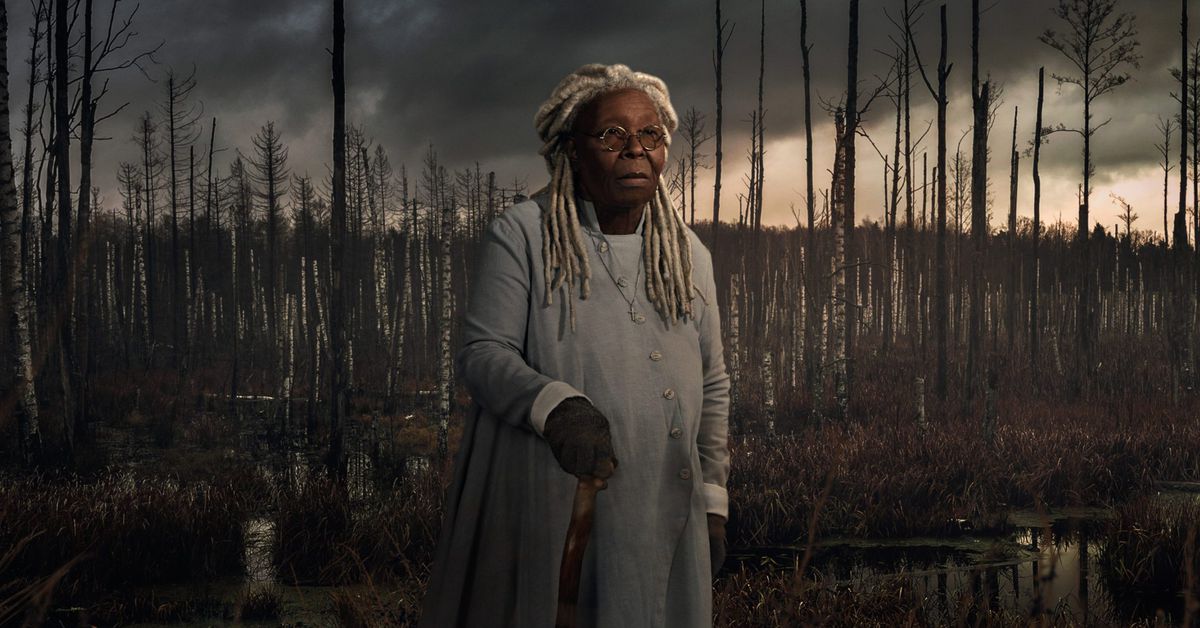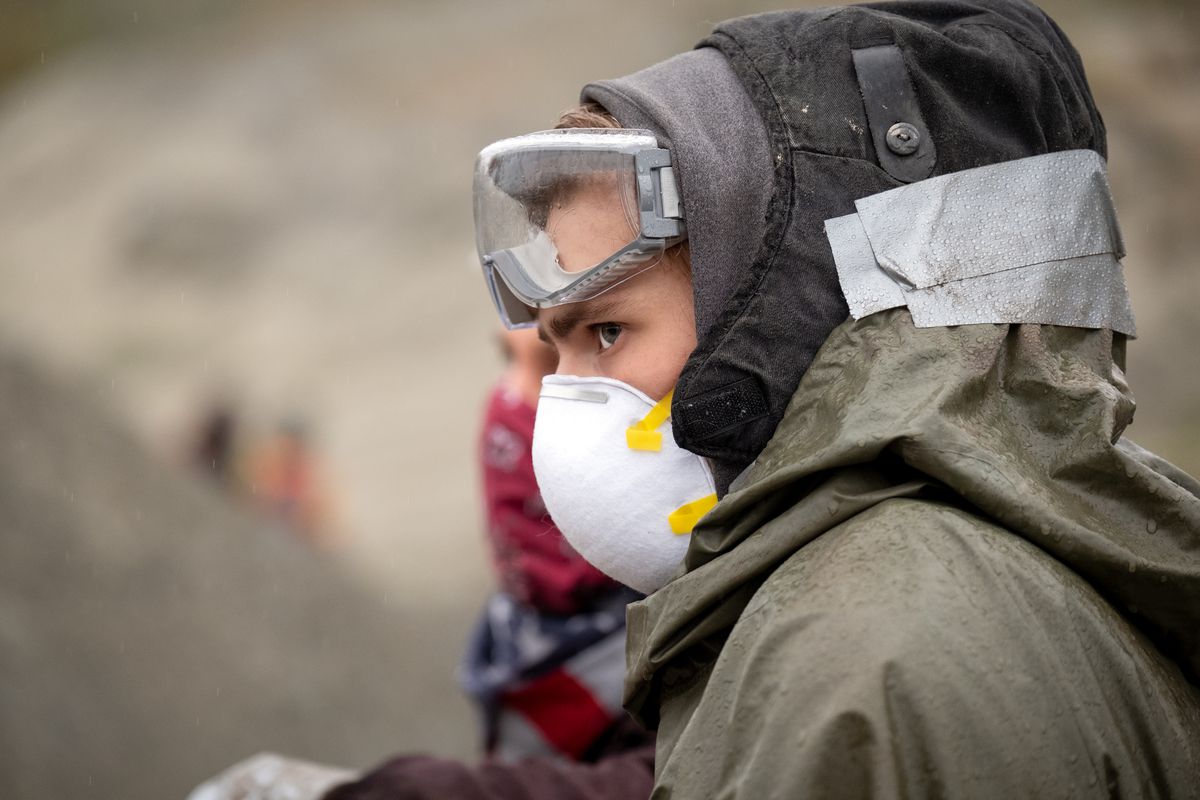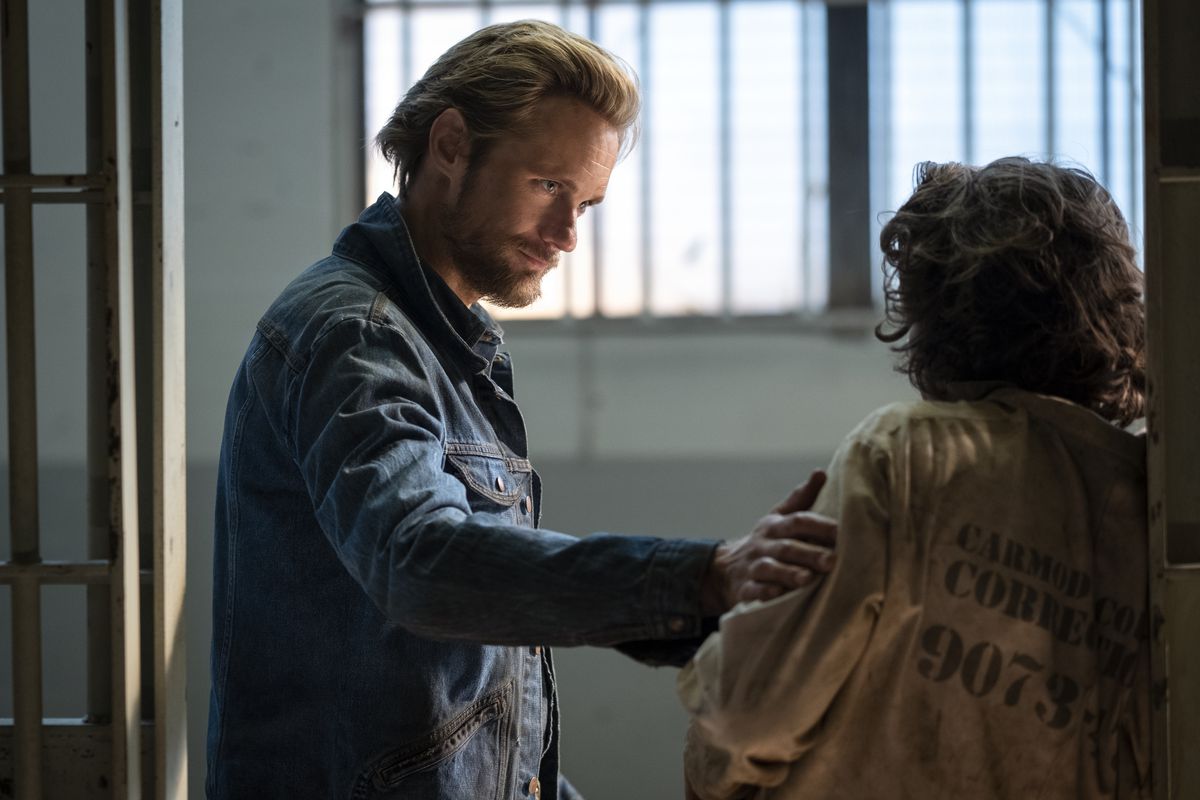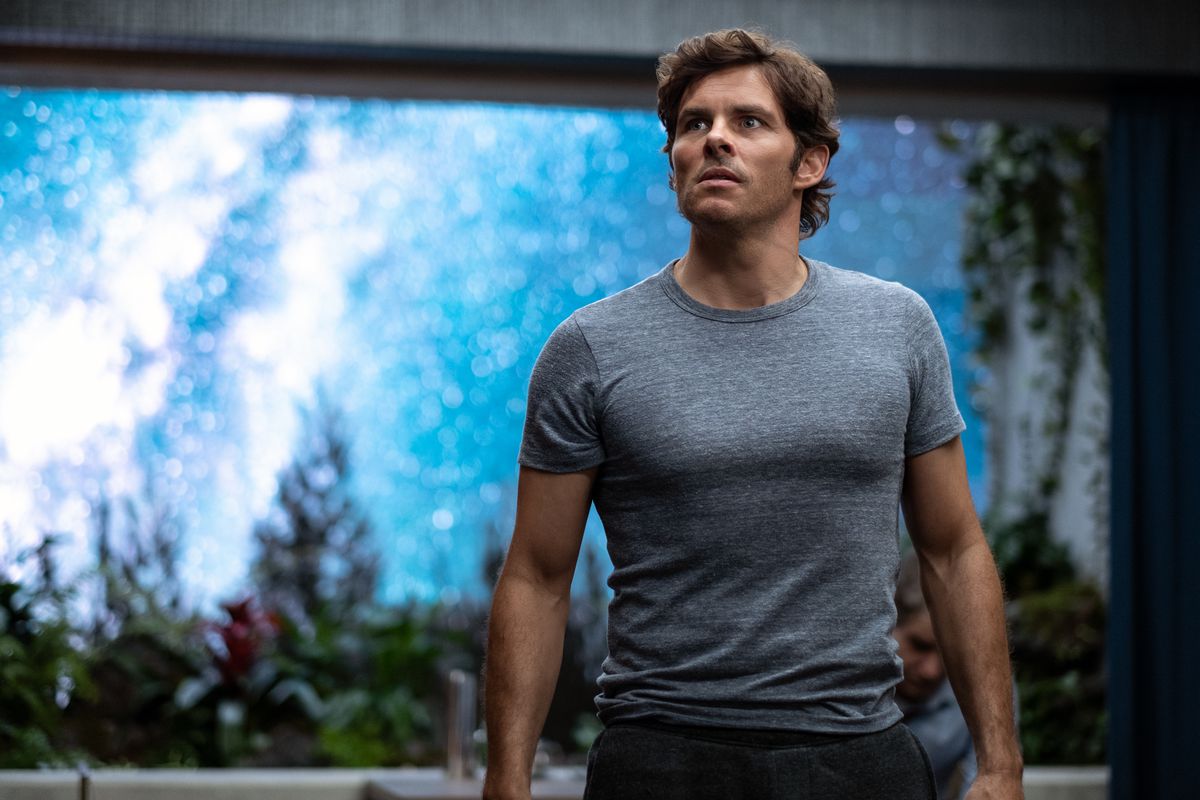
CBS and Josh Boone are the latest to bring Stephen King’s apocalypse story to screen — but it won’t be easy
When you get right down to it, one would have to be at least a little out of their mind to even attempt adapting The Stand.
The revised, “Complete and Uncut” version published in 1990, generally agreed upon as the definitive version, weighs in at a colossal 1,152 pages, making it the longest standalone novel in Stephen King’s entire bibliography. The cast of characters includes dozens upon dozens of players. The story unfolds across a bazillion locations. The subject matter is pitch-black, with folks quite literally being crucified on the streets of Las Vegas and every major highway in America choked with bloated corpses and abandoned cars.
Mick Garris was brave enough to give it a go back in the mid-’90s, helming a four-hour ABC miniseries of The Stand penned by King himself. The results were pretty damn good, all things considered, enough so that most fans have been content to consider that version as the closest thing we’d ever get to a faithful adaptation of King’s seminal novel. Sure, it had rough edges, and yeah, it may have aged a bit over the past 26 years, but Garris’ The Stand holds a special place in many of our hearts. It was, however, inevitable that some other madman would come along sooner or later to give it another shot.
It almost happened as a two- — wait, no, scratch that, possibly four-part feature film series. One iteration had Ben Affleck scripting and directing, but creative differences with Warner Bros. eventually caused him to walk away from the gig. Scott Cooper (Crazy Heart, Out of The Furnace) threw his hat in the ring for this increasingly expensive project, but it, too, never came to pass. These near-misses were met with mild disappointment, to be sure, but the sentiment remained: if nothing else, King fans still had good ol’ Mick Garris’ version to fall back on.
Enter: CBS All Access, who took a shine to The Fault in Our Stars director Josh Boone’s take on the material and greenlit a nine-part (!!!) streaming series based on he and Justified writer Ben Cavell’s pitch. This was to be a hard-R version of The Stand, one that’d do away with much of the streamlining that went into the ABC miniseries, featuring a befittingly gigantic (and diverse!) cast of characters filled out by top-shelf performers and a brand-new epilogue co-written by King himself. I mean, really, who could pass on that deal?
How well Boone has handled the task will become clear when the series kicks off its weekly rollout this Thursday, Dec. 17. There are plenty of ways in which it could go sideways. There’s plenty of room for angering fans of the source material (and King fans are not shy about letting filmmakers know when they’ve fumbled the ball). In my mind, there’s also plenty of room for interpretation on this one, plenty of wiggle room as it pertains to the characters (“Do we really need The Kid?”), but adapting The Stand also requires that one get some details exactly right. These elements are non-negotiable, and getting any of them wrong could cause the whole house of cards to come tumbling down.
Here they are, in no particular order:
The horror of Captain Trips

Owen Teague as Harold Lauder in The Stand (2020)Photo: Robert Falconer/CBS
In a case of what could be considered great or terrible timing, depending on how you look at it, CBS All Access’ The Stand will arrive smack dab in the middle of an actual global pandemic. Will people flock to a show dramatizing a similar (albeit far more deadly) pandemic story when a real one has kept them locked in their homes for nine months? This writer will certainly be tuning in — and based on cloudy streaming service data, we may never know about everyone else — but here’s what I do know: with the freedom of being on CBS All Access, this version of The Stand has the opportunity to go truly buck wild with the horror of King’s fictional super-flu, and I would like to see it.
In King’s novel, “Captain Trips” has a 99.4% lethality rate, and everyone who falls victim to it goes out in a most unpleasant way: a bone-deep cough, mottled skin, snot pouring from their mouths and noses. They leave behind a bloated, terrifying corpse … and with a fatality rate like that, lemme tell ya: they’re leaving behind a lot of ‘em. Garris’ version did an ABC-appropriate job of showing us these deaths and their grotesque aftermath, but I’d like to see this apocalypse in all its horrific glory. Dying from The Stand’s plague is half of that horror; remaining alive in a world filled with the gruesome bodies of those who didn’t make the cut is the other half.
Capturing the truly epic scope of the novel
At over 1,100 pages, The Stand could be about anything and still be considered “epic”. But as we outlined above, it’s a complex, complicated story that spans the length of the entire country, with locations as small as a podunk prison cell and expansive as the Las Vegas strip, swarming with an army of murderers. This is a world where there are more dead bodies than living people, and those who are left alive are connected to each other in deeply personal, often intricate ways. To put it in context of King’s career: The Stand is an even bigger story than It, second only to the author’s iconic The Dark Tower series in terms of scope.
Any adaptation of The Stand should reflect the sweeping nature of the source material. We should feel the loneliness that comes with living in a dead world, the bizarro, giddy freedom that comes with being able to go wherever one pleases, the magnitude of outsize set pieces unfolding against huge backdrops. In short, this truly epic novel deserves an adaptation that communicates an epic sense of scale.
Mother Abigail and Randall Flagg

Alexander Skarsgard as Randall Flagg in The Stand (2020)CBS
As anyone who’s read The Stand can tell you, the novel eventually breaks the super-flu’s survivors down into one of two camps: the good guys (ultimately based out of Boulder, CO), led by the mystical Mother Abigail, and the bad guys (straight outta Las Vegas, NV), led by the ferociously evil Randall Flagg. Each of these leaders represents the polar opposite of the other, though they are both charismatic and powerful enough to essentially form their own mini-nations.
Mother Abigail strikes me as a character who’s probably easier to adapt for the screen: gentle, empathetic, understanding, wise even beyond her 108 years. Beyond the task of simply writing her character that way, the screen version of Mother Abigail would ideally be presented as someone whose kindness is so complete, her love so unconditional, that the pure of heart would be drawn to her like a moth to a bug zapper. She should be someone you want to follow into battle against the forces of darkness. Whoopi Goldberg seems like a good fit. If a prophetic Whoopi Goldberg asked me to walk 1,700 miles to Las Vegas, I’m not sure I’d be able to say no.
Randall Flagg’s the same, he’s just evil. But Flagg is not an easy character to capture. In King’s novels, the eternal being sometimes known as The Walking Dude is less an outwardly evil monster and more of a Loki type. Flagg’s a trickster, a character whose diabolical schemes and plots almost always remain obscured from his victims until it’s too late. Flagg does his evil thing with a great, big shit-eating grin on his face; He might be the Devil incarnate, but also, you kinda want to party with this guy. The Stand cast Alexander Skarsgard in this role, and I’m admittedly somewhat skeptical of the idea.
To date, we have never seen an onscreen Randall Flagg that walks the character’s tonal tightrope with complete accuracy to the source material. Matthew McConaughey gave it a whirl in Nikolaj Arcel’s ill-fated The Dark Tower adaptation, but was failed by the script and, well, everything else going on around him. (That scene with McConaughey’s Flagg wearing an apron and cooking chicken in someone’s kitchen seemed absurd, yes, but I’d argue it’s a thing King’s Flagg might actually do.) Jamie Sheridan was pretty good in Mick Garris’ miniseries adaptation, but feels like one of that project’s more dated elements. Can Skarsgard thread this needle? Nothing about him feels very Flagg-ish, and based on the actor’s previous work it seems like a tall order. But then again, remember how doubtful everyone was when Heath Ledger was cast as The Joker?
[Ed. note: The next two sections contain spoilers for anyone who has not read King’s original novel or seen the 1994 miniseries adaptation of The Stand.]
The Stand’s Deux Ex Machina

James Marsden as Stu Redman in The Stand (2020)Photo: Robert Falconer/CBS
In what can only be described as the most on-the-nose case of Deux Ex Machina in all of literature, The Stand (both the novel and Garris’ version) ends with a final showdown in Vegas, which involves a bunch of nuclear warheads acquired by one of Randall Flagg’s more, ah, unusual sidekicks, The Trashcan Man. Just when it seems like it might be curtains for our plucky heroes, the literal hand of God comes down from the heavens and sets off the nukes, wiping out Vegas and Flagg’s entire clan of nogoodniks. It’s quite the moment, both in the novel and miniseries.
That said, it is also one of the miniseries’ creakier moments, thanks to the limitations of the VFX which brought the scene to life. This is one of several ways CBS All Access’ series can improve upon Mick Garris’s adaptation. Indeed, Boone & Co. have the opportunity to modernize The Stand in a number of ways (the song choices, the pop culture references, the manner in which the story is told, putting an even more diverse cast into play — all kinds of stuff), but this may prove one of the more crucial updates on the material: in 2020, we can render a hand of God that’ll look pretty damn convincing, perhaps even awe-inspiring, which is precisely what this moment demands. The manner in which this sequence unfolds will obviously not make or break the 2020 version of King’s novel, but could — much in the way that any of those other modernizations might — elevate the entire thing into “definitive version” territory. No pressure or anything.
The new “new ending”
Here’s a fresh twist to the “adapting The Stand conundrum” — CBS’ The Stand promises an all-new epilogue/ending, co-written by Stephen King and his son, Owen. It wouldn’t be the first time King has monkeyed with this story’s final moments, but this addendum, whatever it may turn out to be, promises to be something quite a bit more substantial. Indeed, it added an entire extra episode to the show’s episode count. What’s that all about?
We’ll find out mid-February, of course, and it’d be disingenuous to say that I’m not mostly excited by the prospect. What has King managed to add after all these years? Are we going to see what the world of The Stand looks like 10 or 20 years down the road? Are we going to follow Flagg into whatever realm he’s attempting to conquer next (a brief glimpse of which was shown in the 1990 “Complete and Uncut” edition of the novel)? I’m curious about this, but I’m also a bit trepidatious. As I noted earlier in this piece, The Stand strikes a very delicate balance from beginning to end, and changing the placement on any of its major moments (including where and how the story ends) runs a very real risk of toppling the carefully-assembled house of cards that this adaptation can only be.
Used to be that King’s reputation marked him as a guy who wrote trashy horror novels; in the early stages of his career, great swaths of the literary world sniffed at his success and talent. As the years passed, King shed that rep by improving as a writer and willfully confronting more personal, complicated subject matter. He is now generally agreed-upon as one of our greatest living novelists, a guy whose work has influenced entire generations of would-be writers. Nowadays, if anyone’s taking a shot at the King, the criticism tends to revolve around the number of endings he’s fumbled over the years. Much like the “King’s just a trashy horror novelist” bit, this complaint is largely exaggerated … but there is a kernel of truth buried within it (The last truly blown King ending this writer can recall happened over a decade ago, within the final 100 pages of the similarly epic-sized Under the Dome).
All of which is to say: if whatever this new ending turns out to be doesn’t work, it will reinforce an unfortunate stereotype, and could taint the entire project in the process. Again, no pressure. It’s just The Stand.
The Stand premieres on Dec. 17 on CBS All Access. New episodes debut every Thursday.
